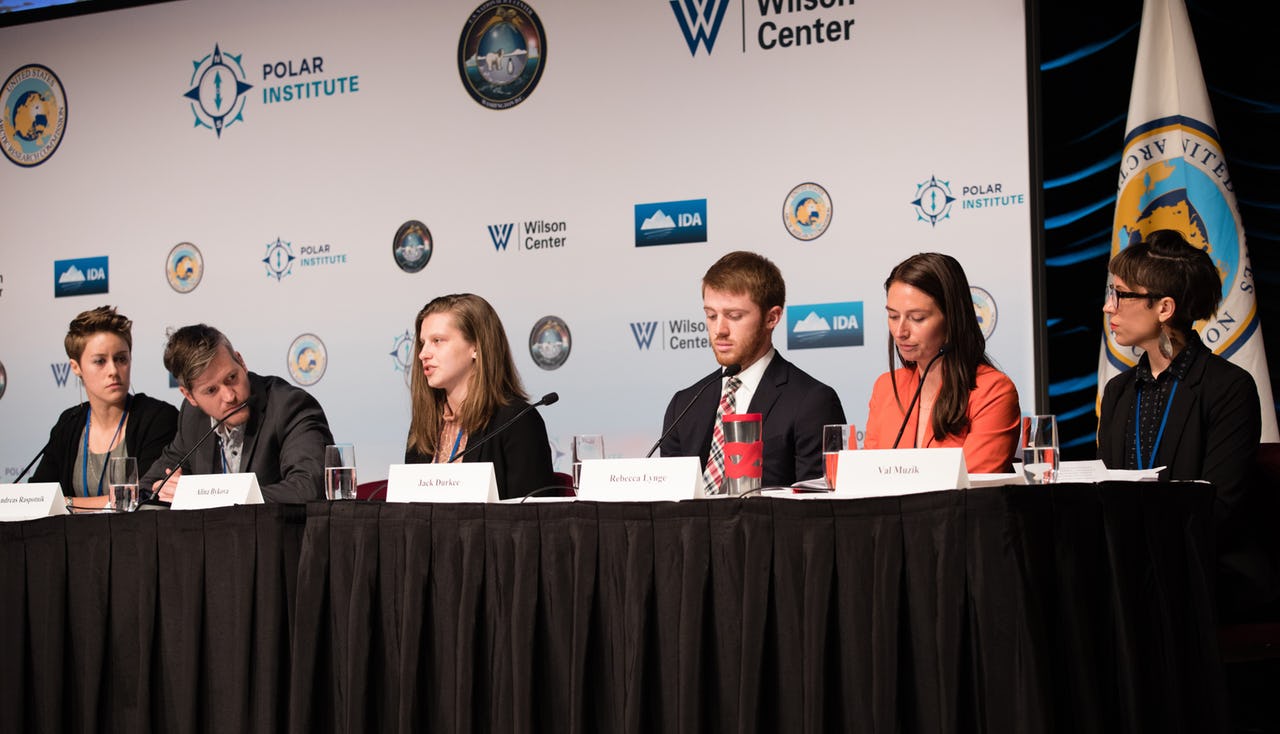Emerging Leadership in an Ice-Diminishing Arctic

Hussong, Raspotnik, Bykova, Durkee, Lynge and Muzik discussed the potential of young leaders in the Arctic at IDA8. Photo: Wilson Center
Members of The Arctic Institute convened at the 8th Symposium on the Impacts of an Ice-Diminishing Arctic on Naval & Maritime Operations (IDA8) in Washington, DC between 17-18 July 2019. Hosted by the Wilson Center, the U.S. Arctic Research Commission, the U.S. National Ice Center, the Arctic Domain Awareness Center, the Patuxent Partnership, and St. Mary’s College, IDA8 drew hundreds of civil servants, military officials, diplomats, business leaders, researchers, and Indigenous stakeholders from around the world. Full IDA8 coverage can be accessed here.
The Arctic Institute organized an emerging leadership panel that addressed issues of inclusivity, equity, and multidisciplinary collaboration in Arctic research. Lillian Hussong, who served as moderator, asked the panel to reflect upon what inclusivity meant in their respective professions, and what strengths the millennial generation may bring to the conversations on Arctic leadership, security and diplomacy.
Andreas Raspotnik, Alina Bykova, Jack Durkee (Wilson Center), Rebecca Lynge (Naalakkersuisut – Government of Greenland), and Val Muzik each spoke about their experiences in their respective professions. Ms. Lynge leaves a powerful, thought-provoking message about the future of the Arctic:
“We are in Greenland – as are peoples across the Arctic – experiencing the growing global attention on our home, as new opportunities are opening up the region. This means that leading nations are developing strategies and establishing partnerships and plans regarding the Arctic. For us, this is welcomed. But actions that are taken in the Arctic will affect us first and foremost – proposed steps and actions to be taken by all stakeholders interested in the Arctic has to advance sustainable human and economic development in the Arctic – in communication and collaboration with the peoples of the Arctic and with the aim of improving the environmental, economic and social conditions of Arctic communities as a whole.”
We welcome you to view the video recording in the link below, and encourage you to join our conversation: What needs to change regarding Arctic leadership? What do Arctic stakeholders, whether emerging leaders or established professionals, want to see going forward? Please help us to keep the dialogue going on The Arctic Institute’s LinkedIn page in the comments.